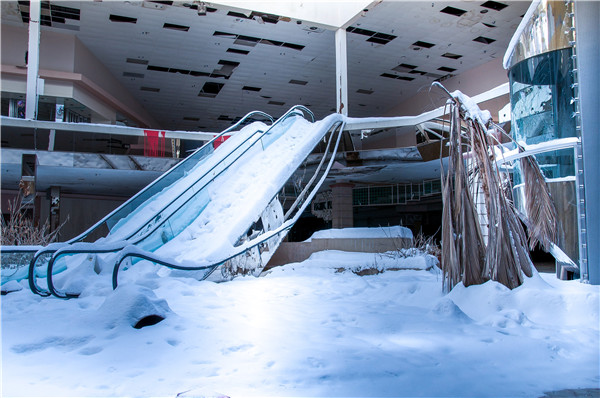America's ghost malls through the eyes of a photographer


Seph Lawless is passionate about the shopping mall's place in American commercial lore.
The photojournalist from Cleveland, whose name is a pseudonym, has published three books documenting a range of abandoned buildings in the US, is sentimental about the malls' contributions.
His haunting photos (http://sephlawless.com) leave one wondering how places once filled with joy and conviviality ended up filled with debris and even snow.
"I long for an America I once knew, and I fear that my images represent a forewarning of an America I never wanted to envision," Lawless told China Daily.
"Personally, I hate to see these malls go, not for any other reason besides what they represented to me growing up. I know malls aren't economically sustainable or energy efficient."
"People no longer want to park at a shopping mall then walk into a mall to pass four to five stores to get what they want. They would prefer to shop at an open mall, park directly in front of a store."
"It's really kind of sad, People just bump into you as they stare down at their phones. We don't have many communal spaces left in America where you can look face to face with another person anymore."
Lawless also sees a socioeconomic element at work.
"I've seen more high-end malls or luxury malls thriving, seemingly unscathed by much of the declining mall culture, most of which are located in the suburbs. This has more to do with the economic rift between the rich and poor.
"Over the past few years, there's been a shift, in the conceptual view, of how to sustain a struggling shopping mall. Those methods far exceed relying on anchor stores as the malls' lifeline."
Lawless believes malls literally should open up.
"I think the deconstruction of the shopping mall itself would be a good start. By removing the roof and opening it up it creates a different shopping experience. I've also noticed an increase of open-designed shopping plazas dotted throughout US suburban cities that are flourishing.
"The US consumer has evolved and no longer wants to shop under bad fluorescent lighting. To be successful, property owners must adapt."




































